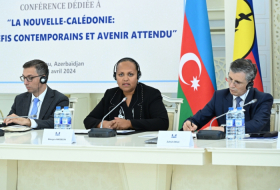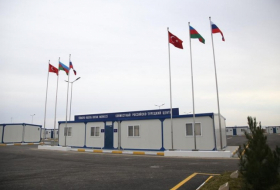A range of serious offences often committed by men in an intimate relationship can now be investigated and prosecuted in the Republic even if they are perpetrated abroad if the suspect is an Irish citizen or resident.
Offences under the new Criminal Law Extraterritorial Jurisdiction Act, which came into effect on Monday, include coercion, harassment, sexual assault, aggravated sexual assault, rape, as well as assault causing harm, threats to kill or cause serious harm. Existing international agreements already handle murder and manslaughter.
The act allows Ireland to ratify the Istanbul Convention – a pan-European convention tackling violence against women.
Rachel Krys, co-director of End Violence Against Women, applauded Ireland's new law but hit out at the UK for not having already done the same.
“It is a loophole that perpetrators have taken advantage of in particular where they see jurisdictions which have different laws or if they feel less likely to be caught or held to account there,” she said. ”It is shocking for women and girls who experience violence and this is currently the case in the UK.”
The campaigner noted the draft domestic abuse bill included new measures to protect women and girls from crimes committed overseas but argued the landmark legislation was taking too long to pass through parliament.
She said: “We are pleased this is included in the bill. It shows why it is such an important piece of legislation but it is taking a very long time to get through a very distracted parliament who are incredibly preoccupied with one issue. Really important issues are being ignored and delayed. Inevitably women’s lives are at risk while we wait.
“If by some miracle the domestic abuse bill gets through parliament and royal assent by this time next year, some measures could come into force straight away, but we fear it could take a lot longer.”
Ms Krys argued the UK should have ratified the convention, which former prime minister David Cameron signed in 2012, by now.
She said the convention sets out a clear level of provision in terms of both crisis and long-term support but the UK fails to meet it.
“No objective observer would argue that we meet that test,” she previously told The Independent. “There just isn’t that provision. We are a long way off. Lots of rape crisis centres have closed their waiting lists – they are comically underfunded and underinvested.”
The UK is one of the last EU members – along with Bulgaria, Hungary and a handful of others – still to ratify the convention. Turkey, Albania, Serbia and Romania are among the 34 countries which have ratified it.
The convention is the most comprehensive legal framework that exists to tackle violence against women and girls, covering domestic violence, rape, sexual assault, female genital mutilation, so-called honour-based violence and forced marriage.
Pragna Patel, director of Southall Black Sisters, welcomed the decision to included new measures to protect women and girls from crimes committed overseas in the domestic abuse bill.
She said the killing of Seeta Kaur, a 33-year-old British national of Indian origin and the mother of four young British children, whose family alleges she was murdered by her husband while on a trip to India in 2015, was the reason the measure was included.
Ms Patel said: “We pointed out the anomaly that FGM and forced marriage can already be prosecuted if carried out abroad and we said it was arbitrary to say some crimes against women abroad can be prosecuted but not others. Seeta’s family feels that although it may not help her family, because it is not retrospective, it will help others.
“Many of the women who are disproportionately affected by this gap in protection are British Asian and minority women because they are more likely to be taken abroad by perpetrators because they have links to other countries.
“Perpetrators deliberately take them to countries where they know they will be able to get away with it because the criminal justice infrastructure is just not there or it is very poorly implemented and amenable to violence and corruption. The bill may be slow to be implemented but we are very happy this gap in protection has been acknowledged.”
Ireland's new Criminal Law Extraterritorial Jurisdiction Act was signed into law at the beginning of March this year - allowing Ireland to ratify the Istanbul Convention on International Women’s Day on 8 March.
Ireland’s Justice Minister Charlie Flanagan said: “The commencement of this act signifies that Ireland is committed to our international obligations and that we are steadfast in our efforts to combat violence against women and all forms of domestic violence.
“These new provisions can now be used to tackle violent crimes committed by Irish citizens and residents abroad.”
The Independent
More about: Irishlaw
















































